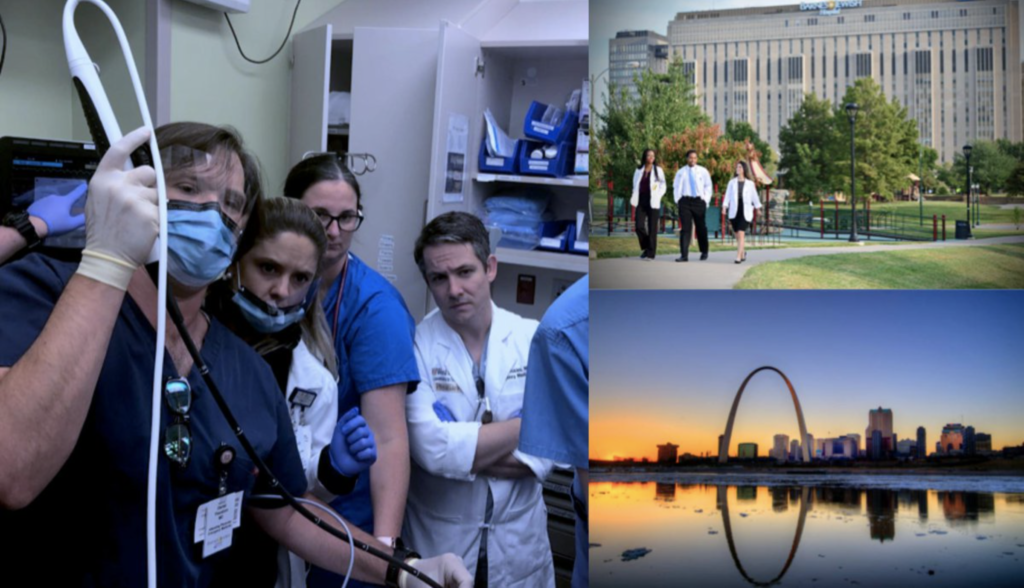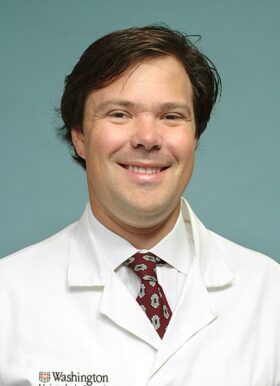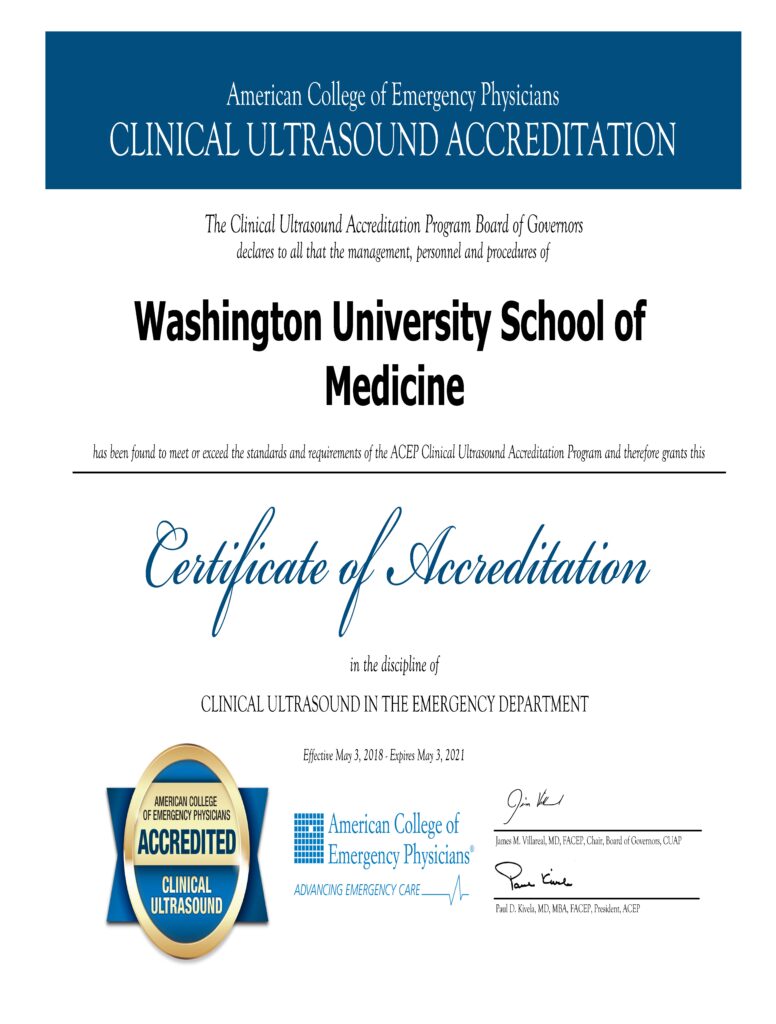
Mission:
The Emergency Medicine Point of Care Ultrasound (EM POCUS) Division’s mission is to support high quality, accurate, evidence-based utilization of POCUS in emergency department and critical care settings and advance POCUS implementation and dissemination through high quality research.
Our clinical program is accredited by American College of Emergency Physicians (ACEP) Clinical Ultrasound Accreditation Program (CUAP). We offer robust education, maintain quality assurance, and follow accepted safety guidelines and maintain high clinical standards of all our ultrasound applications. The Division manages 7 ultrasound machines with the capability to perform an array of emergency point of care applications including Transesophageal Echo (TEE) during acute cardiopulmonary resuscitations.
We offer continuing medical education to our clinical faculty through bi-annual hands on courses, weekly image review rounds, and personalized scanning shifts in order to meet ACEP’s credentialing guidelines. We offer an Advanced Emergency Medicine Ultrasound (AEMUS) Fellowship facilitated by an innovative environment with rich pathology making WUSM an ideal training location. Our resident training program consists of an intern introduction session and a one-month rotation in emergency medicine ultrasound. During that month residents are expected to perform 150 ultrasounds in the “lifesaving” applications and gain sufficient proficiency to perform the exams. Additionally, third and fourth year residents can enroll in an advanced ultrasound elective to enhances their skills with more challenging applications such as regional anesthesia, advanced cardiologic assessment and sports medicine applications.
In coordination with the School of Medicine, we offer a fourth year medical student elective. During this 4 week rotation, we assign the medical student to a member of the ultrasound faculty to learn basic ultrasound techniques as well as emergency applications. The Division offers monthly ultrasound didactics on the third Thursday morning of every month open to all interested parties in addition to participation in the residency education program.
Fellowship trained members of the Division have developed specific areas of focus including advanced cardiac applications, pediatric emergency point of care ultrasound applications, ultrasound guided regional anesthesia and the ultrasound evaluation of musculoskeletal emergencies. Several members of the Ultrasound Division manage active research labs and lead national emergency point of care ultrasound organizations.
Visit us on Twitter @wustl_us!

Daniel Theodoro, MD
Division Chief of Emergency Medicine Ultrasound; Associate Professor of Emergency Medicine
- Phone: 314-362-3408
- Email: theodorod@nospam.wustl.edu
